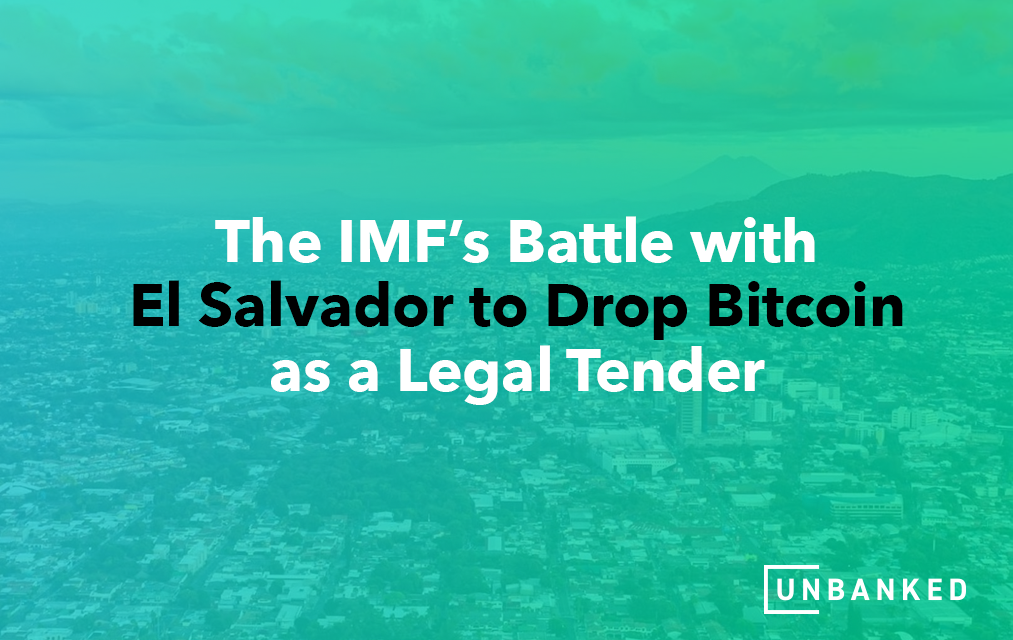At the beginning of 2022, the International Monetary Fund urged the government of El Salvador to drop Bitcoin as a legal tender. El Salvador classified bitcoin with legal currency status alongside the US dollar.
El Salvador made the transition in September of 2021, so this very novel experiment is far from complete. Complicating matters, the decision led to massive protests in El Salvador due to the fear that Bitcoin would destabilize the country, which is already impoverished.
The IMF warned President Nayib Bukele that Bitcoin and cryptocurrencies pose numerous risks. As such, the IMF indicated a reluctance to issue loans to the country so long as Bitcoin continues under official status.
This is a significant statement to the Latin American country, which sought a $1.3 billion loan from the IMF last year.
Given the historically struggling economic status of El Salvador, the country’s decision bears significant consideration. On the one hand, the IMF is the last bastion of aid for countries experiencing financial hardship, and losing that port in a storm could pose a severe risk. However, Bitcoin and cryptocurrency are young, and if business as usual in economics has not been helping countries that are struggling financially, then maybe it is time to try something new.
Bitcoin and Cryptocurrency
Sorting through the nuance of this debate requires an adequate understanding of the terms involved. Bitcoin is a commonly used word, but not everyone understands what it means or what Bitcoins can be used for.
Bitcoin is a digital currency decentralized from control by banks and other agencies (like the IMF). Digital currency is simply any form of currency that does not exist physically, including the money on credit cards or smartphones.
Bitcoin arose from the idea of the mysterious Satoshi Nakamoto, who wrote a white paper setting out ideas for a new system of currency that is decentralized from the authority of countries or institutions.
Bitcoin is just one type of cryptocurrency, of which there are many such as Ethereum, Litecoin, Stellar, Cardano, and so on, to name a few of the more popular currencies. These, including Bitcoin, are known as different forms of Altcoins.
The “Crypto” may sound nefarious, but it comes from the word cryptography that this currency system utilizes for security. Because all forms of cryptocurrency are digital, they require a more thorough process of verification, and this is what is known as “mining.”
These miners verify cryptocurrency codes and store the verified units as blockchain. The process of mining and storing bitcoin in blockchain releases the currency into circulation.
Today, cryptocurrencies, including bitcoin, are used to make purchases for specific items securely. You typically cannot go into a regular store in the mall and try to spend bitcoin unless they accept cryptocurrency, which is still somewhat rare.
However, more and more retailers are beginning to join the movement. It is now possible to make many purchases with bitcoin, including cars, Microsoft products, luxury items like jewelry and watches, insurance, MasterCard, airlines, and indirectly on Amazon. As more major consumer manufacturers and lenders are beginning to accept cryptocurrencies, it would suggest that common usage of cryptocurrency is picking up.
While El Salvador is the first country to recognize a cryptocurrency formally, use is the most widespread in the US, followed by the UK, Canada, South Africa, and Australia, with India, China and Brazil following.
The IMF
The International Monetary Fund (IMF) was established in 1944 in response to the Great Depression. There were 44 founding nations, but it now has members from 190 countries.
The IMF is financed by member countries that pay membership subscriptions. These dues feed into a pool of capital that countries can draw from in times of financial difficulty. Loans and emergency loans are provided to countries with the intention of alleviating the burden so that the country can rebuild its economy. But just like all loans, they come with the contingency of repayment.
For context, the IMF has a pool of $1 trillion available for lending and, as of 2022, has 34 current lending arrangements.
Bitcoin in El Salvador
El Salvador’s President Nayib Bukele is relatively young, at forty years old, and has been enthusiastic about the prospects of Bitcoin. For this reason, he advocated for his country to adopt Bitcoin as legal tender, and as yet is the first and only country to have done so.
The nation has bought at least 1801 coins since that time, and it has depreciated by about 45%, which has been calculated as a loss of up to $20 million. President Bukele’s plans for Bitcoin have been extensive and include constructing a “Bitcoin City” by raising $1 billion through a “Bitcoin Bond” with Blockstream.
To facilitate the use of Bitcoin in El Salvador, the nation launched its national wallet called Chivo, which comes with a $30 incentive and offers no-fee transactions. El Salvador is a country where 70% of its citizens have no access to financial services, so this strategy is aimed to increase financial inclusion.
Financial inclusion is a significant barrier to overcoming poverty in many of the world’s poorest nations. The cryptocurrency was invented to provide financial freedom, although it has not yet reached that goal. But that is not to say it cannot.
Many believe that cryptocurrency has a lot of potentials to “lead a new era of financial inclusion” by providing access to banking which previously held too many barriers. Even the World Bank concurs that cryptocurrencies can offer open and democratic financial systems.
In the pursuit of reframing a country’s economy to embrace alternative and overtly open and democratic forms of currency and economics, there will be trial and error. El Salvador’s experiment has been going on for just five months, but maybe it is worth exploring a little further. With much of the world fighting against economic impoverishment, it could be argued that more countries should be considering alternatives to a system that is not inclusive of everyone.
For more resources on participating in, or learning about cryptocurrency, visit us at Unbanked.





